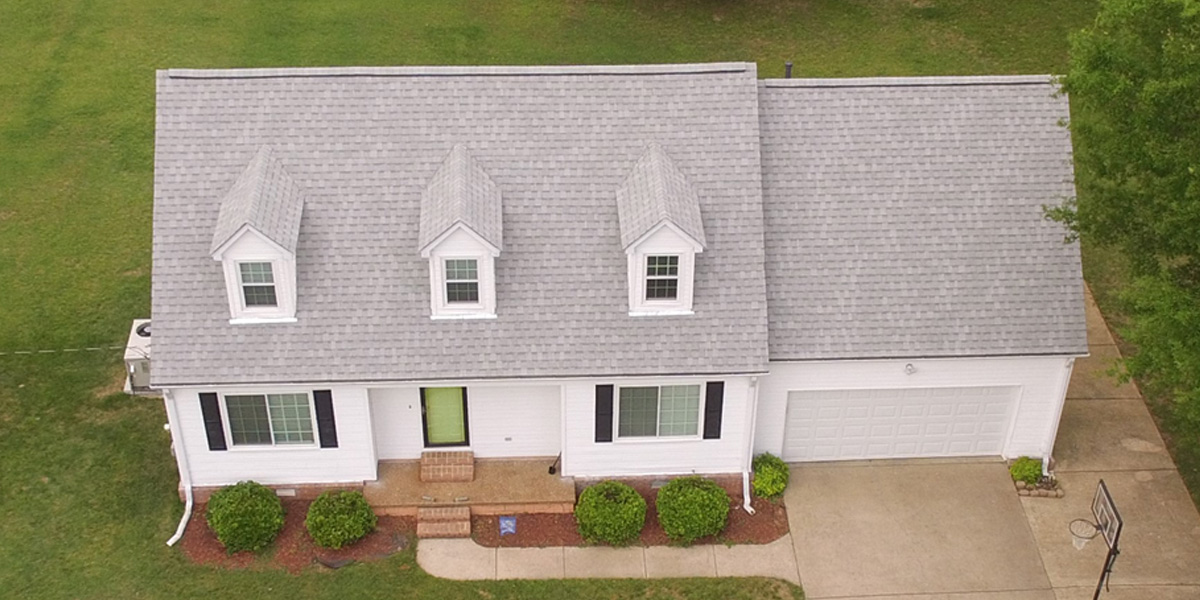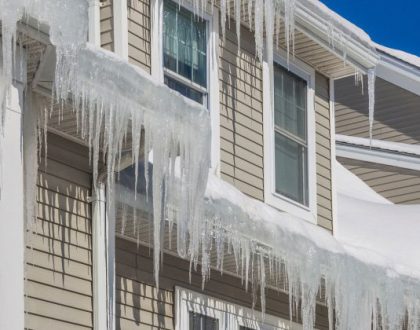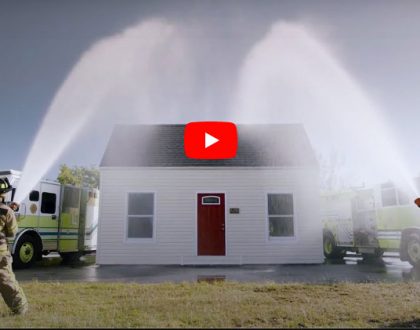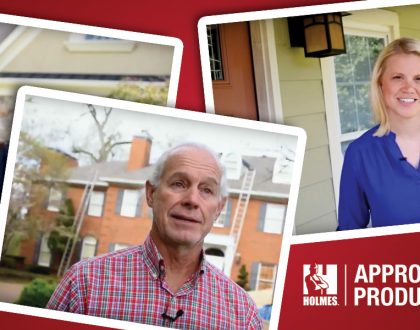The Roofing Industry And Sustainability

Green Momentum
The Roofing Industry And Sustainability
When most people hear the word “sustainable,” they usually imagine solar energy, windmills and hybrid vehicles. The largely asphalt-based roofing industry, however, tends not to be thought of as a model of sustainability. But why not? Sustainability doesn’t refer only to restoring ecosystems and encouraging renewable resources. Sustainability can also mean getting more life and more benefit out of the resources we use. The roofing industry has successfully increased the life of roofs and roofing systems through the use of better materials, advanced ventilation and more efficient insulation.
In addition to improvements in technology and materials, asphalt-recycling programs that keep shingles out of landfills are becoming more accepted by the roofing industry.
Cool Roofs Make For Cooler Homes
The better a roof can reflect the sun’s UV rays, the cooler the roof will be. A light-colored roof composed of the right materials can be as much as 50 or 60 degrees cooler than a conventional roof during the summer months. A “cool roof” reduces energy bills (less air conditioning needed) and improves the comfort levels inside a building. Energy.gov’s blog article “Energy 101: Cool Roofs” describes the primary benefit of cool roofs as decreased attic temperature, which in turn keeps living areas cooler and increases the life of the roof.
While some expensive coatings and membranes that include reflective pigments and synthetic materials are available, they are not necessary for a cooler roof. A roof can be kept significantly cooler with the right shingle materials and better underlayment.
A Word On Attic Ventilation
The attic is probably the single most important element of an effective roof system. An inadequately ventilated and insulated attic causes the roof deck to heat up to incredibly high temperatures, which can result in shingle buckling, moisture damage and increased air conditioning costs.
Insulation Station
The proper type and amount of insulation plays a crucial role in reducing energy costs and increasing the life of a roof and attic. Insulation is most often used to help regulate temperatures both inside the attic and in the enclosed home below. But it can also be used in between wall cavities and behind the siding.
Insulation works by minimizing heat loss either through conduction or infiltration of air. Most insulation comes in the form of foams, batts, boards or loose fill. Some materials, such as cellulose and cotton, are made primarily of recycled content and are more Earth-friendly. Most, however, absorb moisture over time. Others are designed to last a long time and repel moisture, but are made of materials that can be dangerous or petrochemicals that are more harmful to the environment.
GreenHomeGuide.com offers a chart of various attic and wall insulation types, along with pros and cons from a sustainability point of view.
Recycling Roof To Road
More than 60 percent of roofs in the U.S. are asphalt roofs, according to “Environmental Issues Associated With Asphalt Shingle Recycling,” by Innovative Waste Consulting Services LLC. Re-roofing projects and waste from new roofs account for nearly 11 million tons of waste each year (2007 numbers).
The asphalt shingle manufacturing process applies crude-oil-based asphalt to an inorganic (typically fiberglass) mat or felt with a mineral base. Granules are applied to the top of the shingle to add an aesthetic effect (color) and protect the underlying asphalt from sun damage. When recycled, asphalt can be separated from shingles and converted into hot mix asphalt (HMA), which can then be used primarily for roadway repairs. An added benefit is that the fibers in asphalt shingles also help reduce cracking and rutting in road pavement made of recycled shingle asphalt.
You may need anything from minor repairs to a completely new roof. If your roof needs work, take the time to research roofing products and contractors. Click here to explore roofing options.
Streamline Enterprises is located in Lansing, Michigan and have been providing the surrounded areas with quality exterior home improvement services since 1998. They can provide you with a roof inspection and make the best recommendation for your home and budget. Contact Streamline Enterprises for additional information on their products and services.
Streamline Enterprises is an Independent Contractor, not an Employee or Agent of Atlas Roofing Corporation.
Recommended Posts

What Causes Ice Dams and 3 Ways to Prevent Them
January 16, 2024

How tough are GAF shingles?
October 13, 2020

Homeowners Love Atlas Algae Resistant Shingles
September 26, 2019

